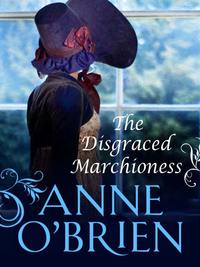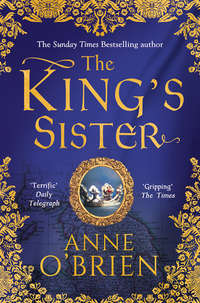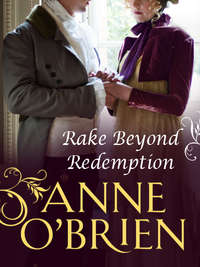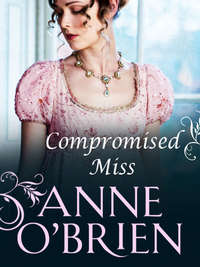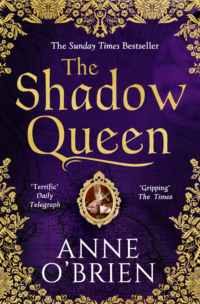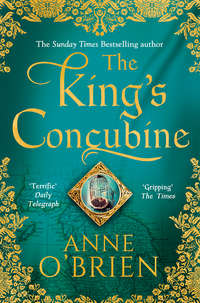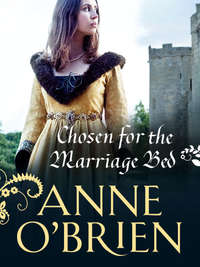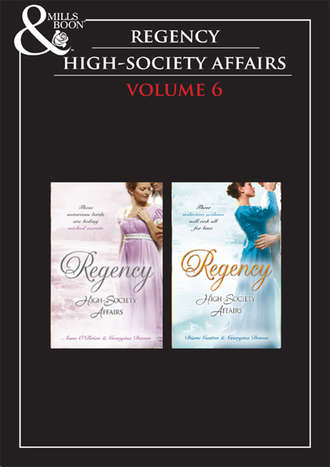
Полная версия
Regency High Society Vol 6: The Enigmatic Rake / The Lord And The Mystery Lady / The Wagering Widow / An Unconventional Widow
For Sarah it was an uncomfortable instant of shock and inner revelation. She took a deep breath as her heart gave one heavy beat, then sighed and tensed against a little flutter of butterfly wings in her stomach, a shiver of longing that spread its warm heat from her breast to the tips of her fingers. A delicate flush mantled her cheeks. Capable, sensible, practical—unworthy—Sarah Russell, who asked nothing more in life than forgiveness for the part she had played in her brother’s malicious plotting, and the chance to carve out a quiet life for herself and her son. Who wanted never to be dependent on the whim of any man ever again. Sarah Russell, who had lived in the same house with both Henry and Nicholas Faringdon, admiring both, acknowledging the charm of both, but without any danger of losing her common sense where they were concerned—or her heart.
And here, in this one blinding moment, her love for John Russell, although it could never be denied, paled into insignificance as the intoxication of longing swam through Sarah’s blood.
Why did it have to happen now? And with this man?
She took herself instantly to task, in typical stern fashion, despite the hectic beat of her pulse at throat and wrist. How foolish she was to allow so immediate a reaction to simply the sight of the man. Of what value was a handsome face if the owner lacked honour and respectability? Of course it was impossible to fall in love so instantly, so completely with someone of whom she had no knowledge, apart from the most damaging of gossip, and who was so far above her as to make the situation patently ridiculous. With a man who had arrived in the intimate company of the Countess of Wexford, who was certainly expecting to take up residence in the house, with no attempt to disguise her relationship with Lord Faringdon. How scandalous indeed! Of course Sarah could not have lost her heart!
But Sarah’s silent lecture did not at all seem to have the desired effect.
‘Joshua.’ The voice of Lady Wexford, although rich and sultry, could slice through flesh and bone. ‘At last.’ She allowed no recognition of his injuries, placing her hand on his arm in a possessive little gesture that merely confirmed all Sarah’s presumptions concerning their relationship. ‘If you would dismiss your staff, I can discover if there is a suitable room for myself and my maid. That is, if such has been made ready for me.’
‘One moment, Olivia.’ A flicker of some emotion in those remarkable eyes—far keener than mere irritation—was quickly banished. Sarah, watching carefully, was not even in the end sure of its existence. But Lord Faringdon turned from the lady and her demands with slow deliberation to make his halting way along the line, speaking one by one to the servants appointed to run his home. Sarah found herself listening to his voice. Soft, low. A masculine edge to trip along her senses. And his words—he found the exact greeting and comment for Mrs Beddows and Millington. Even the maids and footmen. When he smiled his eyes warmed, his face lit with a charm guaranteed to win their loyalty to the last drop of blood. Sarah looked away. It would be difficult for any woman to stand against it.
At last he came to Sarah, at the end of the line, by chance rather than status.
He saw a slight young woman, not overly tall but well proportioned, fine boned with an air of graceful competence. Far younger than he had expected, certainly immature for the position of authority denoted by her formal and severe clothing, the little high-standing ruff of her gown drawing attention to her face. Her fair hair was swept back into a neat twist, but allowing no curls around her face to soften her features. She wore a little lace cap. He gained an impression of a classically oval face, of pale skin, quiet blue eyes, an unexpected fragility. But also a calm composure, again at odds with her youth, as her gaze met his with no shyness on her part. Although… There might have been some momentary flicker of response there that he could not read. But then it was gone—perhaps he was mistaken. But he was not mistaken in noting the soft glow of colour that invaded her cheeks during his lengthy scrutiny.
‘So you must be my housekeeper?’ he asked at last. A mere process of elimination. He looked at her, cool and assessing. He supposed that Lady Beatrice had known what she was about in appointing so youthful a person.
‘Yes, my lord. I am Mrs Russell.’ Sarah performed a neat curtsy, no expression other than the polite response of a servant.
‘You are younger than I might have expected.’
‘I am not inexperienced, my lord. The Countess of Painscastle recommended me personally for the position.’ She would make use of her connections if she had to and prayed that he would not see a need to question his sister too closely.
‘So this is all Judith’s doing. I should have realised.’ Absorbing Lady Beatrice’s rejection of his initial request for help, his lordship’s eyes grew flat and dark. But what other had he expected? He turned his attention back to the fair young woman who was addressing him again in a pleasingly educated voice.
‘I am also engaged to undertake the education of your daughter when she is in London, my lord.’
‘Ah. Has she arrived?’
‘No. We expect her any day. All is in readiness, my lord.’ A confident voice, he realised, soft and well modulated. Somehow, it matched her appearance exactly. On first impression he approved his sister’s choice.
He would have turned away when his attention was caught by the slightest movement at Sarah’s side. He looked down.
‘And who are you?’
The small boy moved a foot to the left, out of the shelter of Sarah’s skirts, yet still keeping a fold tight in his fist. But he smiled and answered readily, ‘I am John.’
‘What are you doing here, John?’
‘I live here. My lord,’ he added at a slight nudge from Mrs Russell.
‘Well, now. And why is it that you live in my house?’
‘I…’ A question beyond him. John glanced up at his mother with sharp anxiety.
‘He is my son, my lord.’
And he could immediately see the resemblance in the fair hair and light complexion.
‘Is it fitting to have a married person as your housekeeper, Joshua?’ The Countess, resenting the intrusion of servants into Lord Faringdon’s attention to herself, had come to stand beside him, now looking Sarah over from head to foot with frigid disapproval. And with a child? Surely that is not appropriate in a gentleman’s household. Besides, children are so noisy.’ Her glance at the small boy was one of sharp distaste, barely masked.
Sarah stiffened, recognising an enemy in the supremely self-absorbed, supremely beautiful Countess, but addressed her reply with perfect equanimity to her employer. ‘I am a widow, sir, and have been so for five years. Forgive me, my son should not have been here.’ She would not apologise or explain further. ‘He will not be a nuisance—to yourself or to her ladyship, I do assure you.’
The Countess promptly turned her back, walking leisurely towards the staircase, choosing to signal her displeasure by ignoring the situation as one of no interest to her. ‘Has a room been made ready for me?’
‘Yes, my lady.’
‘Good. Then be so good as to direct my maid Hortense with my luggage. I need to rest. Is this the withdrawing room? Perhaps you will send tea.’
Lady Wexford made her languorous way to the withdrawing room, leaving his lordship to remain for a long moment, looking after her with a distinct frown between his brows and making no effort to hide it. Then, with the slightest of shrugs, which caused him to wince, he handed over coat, hat and gloves to one of the waiting footmen and limped heavily after her.
To leave behind him in the entrance hall a flurry of comment and interest. Lord Faringdon and his mistress now in residence! A situation promising much food for gossip below stairs. But for Sarah there was considerable personal conflict. She disliked the Countess of Wexford on sight and knew instinctively that the feeling was reciprocal. Perhaps the lady disliked any woman, even the housekeeper, who took the lord’s attention from her for even a moment. Whereas Lord Faringdon… Sarah pressed her palms to her heated cheeks. She could not believe the immediacy of her response to him. How her heart had leapt, her blood warmed, her pulse beat with furious intensity. But it could not be. It was merely an attack of nerves, brought on by her first meeting with her employer. Love without prior knowledge, without a desire to seek it, so blinding and uncomfortable, was merely a foolish romantic dream that had no place in reality, certainly not for a careful woman as she knew herself to be. Nevertheless, Sarah was forced to accept that entirely the best policy was to banish his lordship from her mind and keep her distance. After all, there was nothing surer than that she would never hold any place in his thoughts.
* * *
Celestine Faringdon followed close on the heels of her father and the Countess of Wexford on the following day, escorted from Richmond by her nurse, Edith Watton, a lady of extreme age who had been nurse to both Joshua and Judith, and who would remain with her young charge in London. Hardly had the two new arrivals set foot inside the house than Sarah was called to the library to be introduced to the girl.
Lord Faringdon was standing by the fireplace, his daughter at his side, and turned to Sarah as she entered.
‘Mrs Russell. This is my daughter Celestine.’ She could read little from his cool manner, but was aware of some undercurrent in the room. If she had not known better, she would have suspected a plea for help in that commanding stare.
The girl made an instant impression on Sarah of being far older than her eight years, a reserved child who perhaps would not readily give affection or confidences. Celestine was, her new governess decided, a child who had grown up much in the company of adults, who had not been encouraged to laugh or play or forget her dignity as Miss Faringdon. How serious she was! With a surprisingly plain and solemn face, her skin was sallow and her eyes so dark as to be almost black. And unblinkingly direct. Her hair, equally dark, was ruthlessly drawn back into a severe braid. She was tall for her age and a little thin, and pale despite country life where she could have run out of doors. And most notably, in Sarah’s quick assessment, was the fact that she did not smile or show any animation, either in her polite greeting to Sarah or her responses to her father.
Not at first glance an attractive girl, yet Sarah thought that one day she would be lovely in a dramatic fashion. Her perfect oval face had excellent bone structure, promising high cheekbones and a straight nose. Her skin had the translucence of rippling stream water, and her hair shone as dark silk. When released from its braid, it might even curl. Now she faced her father in the library, quietly obedient, with nothing to say for herself. She acknowledged Sarah as instructed, but did not raise her eyes above the hem of the lady’s skirts.
Lord Faringdon appeared to be somewhat baffled by this small contained person as he attempted to draw her out, in the interest of Mrs Russell getting to know her new pupil. Did you have a pet in Richmond? Do you like to ride? What do you like doing when not at your lessons? Which lessons do you enjoy best? Finally he gave up after a string of monosyllabic and uninformative answers, and addressed his comments instead to Mrs Watton.
‘I trust that you will be happy here, Mrs Watton. I owe you much for the care of my daughter. Mrs Russell will be in charge of your comfort here… ‘ Again it seemed that his quick glance at Sarah held almost a hint of desperation. Celestine remained distant and silent as her father outlined his arrangements for her, standing straight and prim, hands folded before her, in a dark dress, ruched and beribboned in a manner far too old and sophisticated for her slight figure.
The uncomfortable episode was brought quickly to an end, and Celestine was sent off with Sarah, who readily imagined the sigh of relief behind her. They climbed the staircase side by side.
‘I will show you to your room, Celestine. And the room where we shall take most of the lessons.’
‘Yes.’
Sarah opened the door and ushered the child in. ‘Here is your room.’
It was a pretty room, light and airy, where efforts had been made to furnish it suitably for a young girl with floral patterns in shades of pale green and primrose and with frivolously frilled curtains on the half-tester bed. Celestine walked round, taking her time, to touch the curtains and the soft cushions on the window seat, to run her fingers along the edge of the little inlaid dressing table. To inspect the paintings on the walls.
‘Do you like it?’
‘Yes.’
‘Perhaps not as comfortable as your room in Richmond.’ Sarah had no idea, simply wishing to persuade the girl to talk. ‘It will soon look like home when you have your own possessions unpacked.’
‘It is very nice.’
‘Tomorrow we shall begin your lessons and see what you can do. But today it is enough for you to settle in. It must all seem very new and strange.’
‘Of course.’
‘Come then, Celestine. I am sure you are hungry after your journey.’ Sarah was turning to leave when Celestine at last ventured an opinion. But not one expected by Sarah.
‘My father does not want me here, you know. He does not like me.’
Sarah angled her head to watch the girl who still stood before the window, looking out at the vista of sky and clouds, hands clasped behind her back and giving the air of a prisoner in a locked room. Why would the child make such an extravagant claim? She tried to keep her expression and her tone light and calm.
‘But why do you say that? Who told you such a thing?’
‘He has never wanted me with him before. Neither did my mother.’
Sarah tried to hide her astonishment, a little unnerved by the cool acceptance of the situation, if it were indeed so, the flat statement of what might very well be true, given Sarah’s knowledge of this troubled household and the child’s solitary upbringing.
‘Do you miss your mama?’
‘No—not really. She was not often in England. I barely remember her.’
‘Did you not live in Paris?’
‘When I was a baby. I do not remember. I have visited since then—but not for long.’
‘I am sure that your father is very pleased to have you here.’
Sarah tried for a reassurance she did not feel. ‘It was his idea that you should join him, after all. And that I should be here to care for you.’
‘Perhaps.’ Celestine made no further reply, as if the truth were clear enough without any clarification from herself.
‘Come and have tea.’ Sarah encouraged the girl through a connecting door into the schoolroom and then on to the door into Sarah’s sitting room, where a table was laid for tea. As Sarah opened the door John burst through it from the outer corridor, hair tousled, eyes shining, cheeks pink with effort.
‘There are even more horses in the stable now, Mama—but not as fine as Lord Faringdon’s. And a coach—’ He slid to a halt, chest heaving.
The two children sized each other up.
‘This is Celestine who has arrived at last. This is my son, John.’
‘Hello.’ John grinned. ‘Why did it take you so long, Cel—Celst…?’ He blushed in some confusion, but was in no way embarrassed. ‘I cannot say it! I do not know anyone called that.’
Sarah chuckled as she reached to draw her son to a halt at her side. ‘I think he finds your name difficult,’ she explained to the formal young lady.
‘It is French.’
‘I know. And very elegant. But John is younger than you and has not met French names before.’
It seemed for a moment as if Celestine might sneer at such childishness, but then said, ‘I have never met a boy your age before. How old are you?’
‘Nearly six.’ John eyed her warily.
‘I have had my eighth birthday. I shall soon be nine.’ The dark eyes watched, weighing up the boy, coming to a decision. ‘I have another name.’
‘And what is that?’ Sarah asked.
‘Elizabeth.’
‘We could call you Elizabeth,’ Sarah ventured, ‘if you did not object.’
Celestine flushed a little, her colourless skin warming to a hint of prettiness. ‘I think I would like to be called Beth. No one has ever called me that. Can you call me Beth, John?’
‘Of course I can! I have been waiting for you for so long, Beth. I have been lonely here with no one to play with. Are you hungry? I am. Mrs Beddows has made a cake for us. Come and see.’
Sarah watched the outcome with interest. Celestine—Beth!—hesitated, but only for a moment. Then stepped out to take John’s hand with all the condescension of her three years’ maturity.
‘Yes. I am hungry. I would like you to show me the cake.’
They sat down at the table, John explaining that after tea he would show Beth his own room and then…
Sarah allowed a silent sigh of relief as she noted the surprisingly tolerant expression on Beth’s face. The way she listened as John prattled on, waving his arms about with typical enthusiasm. The girl took little part in the conversation, but nodded when John looked to her for confirmation of some trivial matter. Well! If Miss Faringdon saw herself in a maternal role toward John, it might just be the means to get this frighteningly composed young lady to settle into the household. As for her relationship with her father—Sarah had no idea. The child felt unloved and unwanted, of which sins Lord Faringdon might very well be guilty for all she knew. One more transgression to lay against his soul if he could be so cruel as to neglect his own child. Yet Sarah found herself hoping that it was not so, for how could she have fallen headlong and ridiculously into love with a man she did not know, one with a contemptuous reputation and who could be so needlessly heartless to his daughter?
But that was a matter for the future, she decided as she allowed the children to leave the table. Enough that today Beth was here and was not averse to her new home.
Chapter Four
In the following days Sarah could convince herself that it would be an easy matter to keep a distance from Lord Faringdon. The only immediate ripple on the tranquillity of her pool was a note from Judith, hoping that Sarah would be able to find the time to visit for tea in Grosvenor Square. Sarah did not comply, but penned a brief apology, citing pressure of work since Lord Faringdon was now in residence. She knew that she had made the friendship well nigh impossible by her stepping across the social divide. It hurt, but she had deliberately made the decision and must not, therefore, dwell on any regrets. Judith would realise and accept—she was not so naïve as to be ignorant or careless of the situation. In private, Sarah shed a few self-pitying tears.
Her energies were soon directed towards other matters, not least diplomatic negotiations between a number of strong-willed and self-important individuals. Lord Faringdon’s valet, a severe gentleman, was not given to personal chatter, but would hear nothing wrong of his employer, quick to depress any slighting comment with a stern frown and biting words. The Countess of Wexford’s maid, Hortense, was very different—a superior little madam, French, of course, who kept herself to herself, yet demanded the best of everything for herself and for her mistress. Celestine’s nurse, Mrs Watton, was a comfortable old body who did not regret in the slightest passing authority over her charge to Sarah. The child took too much after her mother. Not that they had seen a great deal of Marianne Faringdon before her untimely death. But even so! Blood would always out.
The gravest problem for her was the one most unlooked for. Mr Millington, the butler, developed an unexpected and completely inappropriate tendre for Sarah and followed her with a gleam in his pale eyes. Nor was he averse to glasses of port in the seclusion of his pantry. Sarah avoided him as much as possible after an embarrassing incident in the wine cellar, when the self-controlled housekeeper made her position very plain in a remarkably austere voice, which destroyed all Mr Millington’s pretensions.
The Countess of Wexford was demanding, thoughtless, selfish and patronising. She objected to being woken, but complained when her cup of hot chocolate did not arrive on the instant that she opened her eyes. Hot water was expected to appear at the very moment she required it, earning for one of the maids a sharp and quite unnecessary slap; the same intolerance was applied to the laundering of her beautiful clothes, with never a word of appreciation or a genuine smile.
Her smiles were gifted solely on Lord Joshua, offering a source of much interested gossip and speculation. Not that speculation was needed. Of course she was his mistress. What other reason could there be for a lady to be residing in the house of an unmarried gentleman, and one with such presence and address as his lordship? Fortunately, with his lordship somewhat incapacitated, the Countess was frequently away from the house in Hanover Square.
Lord Joshua proved to be an enigma, spending much time at home, nursing his wounds. The library became his personal domain where he read the Morning Post, drank brandy and wrote many letters. Millington proved to be a fount of knowledge for the household. His lordship had few visitors, but the gentlemen who called at the house did so at unusual times, often late at night. They never gave their names or left a visiting card. Quite respectable, dark-suited individuals, as might be expected from the legal profession, but Millington did not think they were connected with the law. Lord Joshua also received an inordinate amount of mail, over and above the gilt-edged invitations.
Otherwise his life was very quiet, which did not seem to Sarah to be at all in keeping with what she imagined the lifestyle of a notorious rake to be. But, of course, he had the companionship of the Countess. Millington swore on his own authority that his lordship visited her room at night. What man in his right mind would not, with so glamorous and seductive a lady living under his roof and casting out lures. Millington whispered rumours of outrageous orgies and scandalous parties hosted by his lordship in Paris. Not perfectly sure that she knew what an orgy entailed, Sarah’s suspicions were aroused when, on entering the morning room, she encountered the couple unawares. She was able to retreat, but not before she saw the Countess of Wexford brush her hand through his lordship’s hair and reach up to kiss him full on his mouth.
Sarah found herself thinking vengeful thoughts against the lady, disappointed that Lord Joshua Faringdon could not see the Countess of Wexford for what she was. At the same time she admitted, with a blush, that she would like nothing better than to take the Countess’s role in this little scene. Standing in the scullery, a newly polished silver tureen in her hands, her fingers itched to stroke through that silvered hair. Her lips trembled at the thought of the man’s intimate caress. Sarah blinked at the shattering image, putting down the tureen with unnecessary force and little thought to its value.
When Sarah’s cheeks had cooled and she had scolded herself out of her bad temper, her thoughts turned to Lord Joshua’s daughter. So young and yet with a studied and disturbing composure. Beth had already been taught the rudiments of reading by someone in the household in Richmond. She loved to turn the pages of books, poring over the illustrations, and even more to listen to Sarah read the stories, following the words with her small hands. She was soon close to having read all the suitable books in the schoolroom. On the whole Sarah found that her role of governess was not onerous, particularly as Beth took on the role of an elder sister toward John. She reprimanded him and hugged him in equal measure. John at his most good-natured accepted the attention with equanimity.


